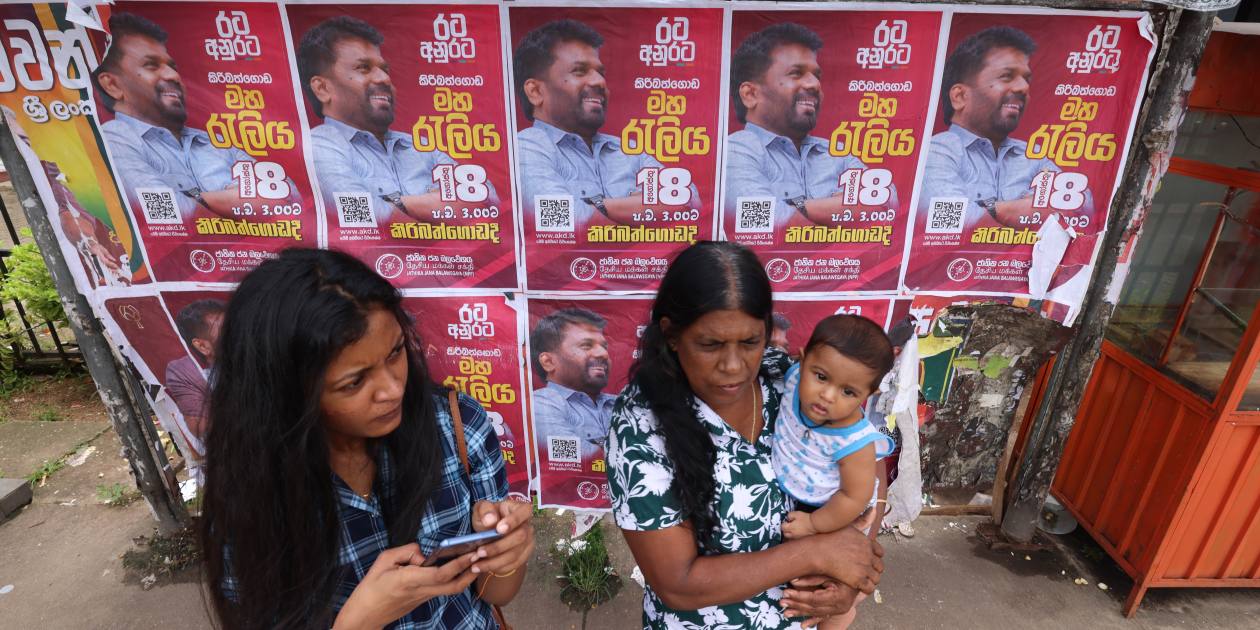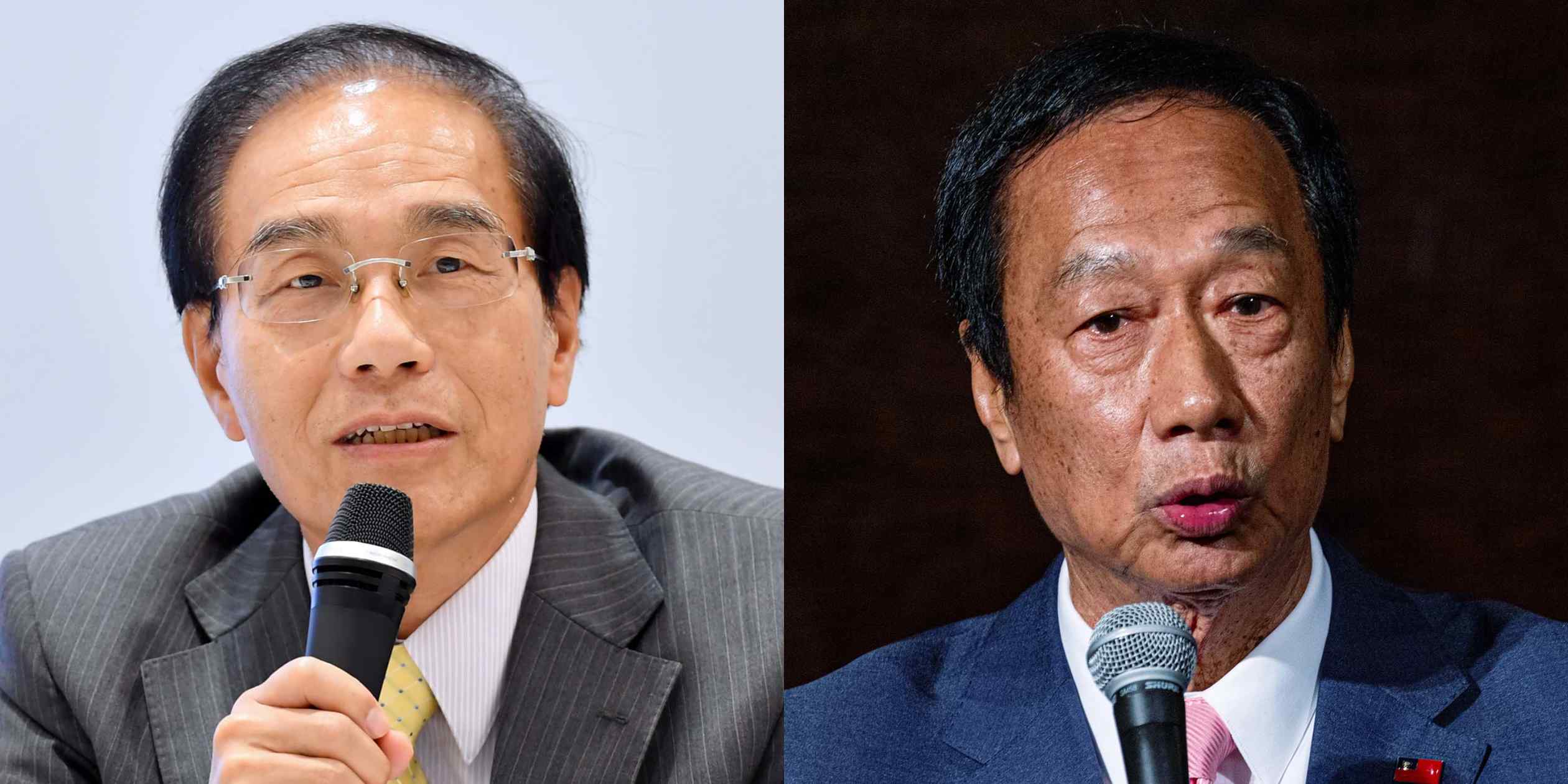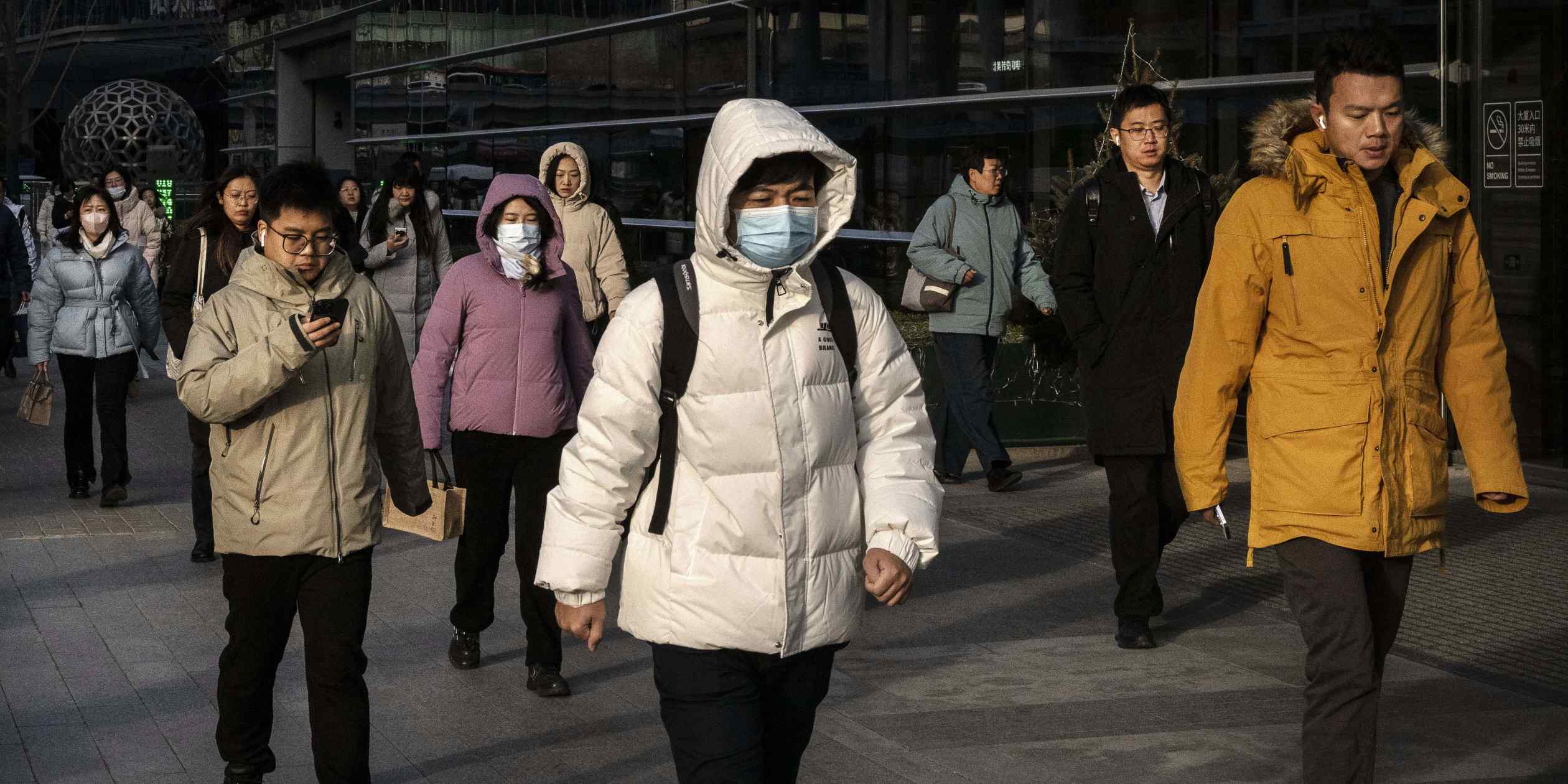

Campaign posters for Anura Kumara Dissanayake of National People’s Power in Colombo on Aug. 19. (Photo by Shinya Sawai)
Hello from Tokyo. As we move into September, the 2024 election year is entering its final stretch. While many of you may be focusing on Japan’s ruling party leadership election this month — in which more candidates are throwing their hats in the ring every day — or the U.S. presidential vote in November, some important elections still lie ahead in Asia.
Among them is Sri Lanka’s presidential vote on the 21st of this month. The country defaulted on its debt two years ago, and the resulting economic turmoil spurred violent anti-government protests that forced then-President Gotabaya Rajapaksa to flee the country on a military plane, ending his family’s long rule.
The upcoming election will be the island’s first since that tumultuous time, and more than 30 candidates are vying for the presidency, including the eldest son of Mahinda Rajapaksa, Gotabaya’s brother. This week’s Big Story explains why this election is crucial for the country, which is still trying to emerge from an economic crisis with the help of the International Monetary Fund. The story also examines how voters there are approaching this election differently from previous ones.
Similarly, a new trend is emerging in the U.S. presidential race, notes this week’s Asia Insight. As the race between Democratic nominee Kamala Harris and Republican nominee Donald Trump grows tighter in the battleground states, both sides are increasingly focusing on carving out marginal gains by courting the Hmong community and other Asian American voters, who have received relatively little attention in the past.
Speaking of change, do you think a Canadian company is capable of operating Japanese convenience stores, which have become a vital part of Japan’s infrastructure? Several weeks have passed since Seven & i Holdings, operator of the 7-Eleven chain, received a takeover offer from Canadian convenience store giant Alimentation Couche-Tard. While Seven & i appears reluctant to accept the proposal — and several other hurdles would also need to be cleared — Business Spotlight in this week’s magazine explains why the company has become a takeover target.
This week’s magazine also features another article about a Canadian company, this time on a slightly lighter note. Canadian coffee chain Tim Hortons arrived in Malaysia last month, underscoring a shift in the nation’s tastes and social habits, which have traditionally been dominated by tea (although my colleague, who has a Malaysian wife, disputes that notion). Coffee consumption there has soared in recent years, spurring not only a wave of foreign coffee shop openings but also significant growth among local chains.
Lastly, I have an announcement. Next Monday, Nikkei will host the Nikkei Forum in Sydney, where experts and our Sydney-based reporters will explore the deepening business and economic ties between Japan and Australia. The event will focus on sustainable development, innovation and economic security. Online viewing is free, so please register to join the discussion!
Wishing you a wonderful weekend!
Shin Nakayama
Editor-in-chief, Nikkei Asia
Sign up for the weekly Editor-in-chief’s picks newsletter here.
Follow me on X (formerly Twitter) @ShinNakayama_NA


